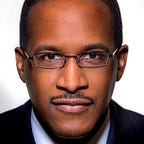A January 6th Message to College Presidents: Resist Being Good People Who Are Appallingly Silent
January 6, 2021. It is one of those days, just as Vice President Harris said this morning, is one you remember, just like December 7, 1941 and September 11, 2001. I spent that evening glued to the TV, watching the coverage in amazement. I simply could not believe it. I think my brother Lawrence Ross summed up my thoughts perfectly:
As the day descended into chaos, a number of presidents reacted on Twitter. HBCU presidents were in that number (and of course my favorite outspoken president Pat McGuire who serves a PBI).
There was a nice summary of tweets in this story.
I was contacted by Inside Higher Ed and this is how I summed up the day:
Higher ed leaders continued to offer public condemnations of the administration the following days. I am not a fan of statements as a whole because I think they are usually timid, but in this case, I saw many strong statements of condemnation against elected officials. The most direct was from Ron Mason, president of UDC. As an HBCU president, in Washington DC, his words were powerful:
“The easy response is that Trump and his enablers played with fire and the Capitol got burned. On a deeper level, poor and working-class white people are pawns in the Trump movement to perpetuate the system of White supremacy in America. It is a system that concentrates wealth in the hands of a privileged few and oppresses people, especially Black people, in order to do so. As a nation, we cannot begin to heal until we admit that we have a problem, and our problem is the system of White supremacy.”
Now, more than ever, we need college and university presidents to use their bully pulpits to address the issues of the day. Every year I write a blog like this reminding myself and encouraging my colleagues to speak out. I shared this article from Scott Sherman for The Nation last year:
It has the following powerful quotes:
Sherman: “Think about it: When was the last time a college or university president produced an edgy piece of commentary, or took a daring stand on a contentious matter?”
Andrew Hacker and Claudia Dreifus (2010): “Once upon a time, university leaders were seen as sculptors of society.” Now they “are chiefly technocrats, agile climbers who reach the top without making too many enemies or mistakes.”
Jonathan Cole (2009): “Presidents have done a very, very poor job of using the bully pulpit for higher education… There aren’t many presidents who are fighting against the powers that be.”
Theodore Hesburgh (2001): “We cannot urge students to have the courage to speak out unless we are willing to do so ourselves.”
Here are some of the op-eds written by HBCU presidents in 2021. Op-eds, statements, even tweet threads are opportunities to advocate for ideas and causes. In a contentious election year where the fate of democracy is legitimately on the ballot, now is not the time for fear. Our communities need advocates.
This is part of the job.
Since we’re on the eve of commemorating the life and work of Dr. Martin Luther King, Jr., allow me to share a quote that has nothing to do with content of character (because everybody will use it out of context next week):
“We will have to repent in this generation, not only for the evil words and deeds of the bad people, but for the appalling silence of the good people.”
The Prez
Dr. Roslyn Clark Artis, Benedict College
Dr. Christine Johnson McPhail, Saint Augustine’s University
Dr. Elfred Anthony Pinkard, Wilberforce University
Dr. Dwaun J. Warmack, Claflin University
Dr. Wayne A. I. Frederick, Howard University
Dr. Andrew Hugine, Jr., Alabama A&M University
Dr. Wayne A.I. Frederick, Howard University; Dr. Valerie Montgomery Rice, Morehouse School of Medicine; Dr. David M. Carlisle, Charles R. Drew University of Medicine and Science; and Dr. James E.K. Hildreth, Meharry Medical College
Me.
